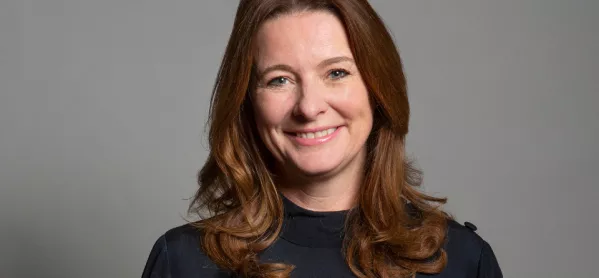Providing industry placements to the first T-level cohort is an "overcomable" challenge despite the coronavirus pandemic, the apprenticeships and skills minister has said.
Speaking exclusively to Tes after a virtual visit to City College Norwich, one of the providers of the first round of T levels, Gillian Keegan said that she was "not so far" worried about how the coronavirus pandemic was altering the experience of the first T-level cohort, who started their course only weeks ago.
T levels are being hailed as the new, high-quality technical alternatives to A levels. Created in collaboration with industry experts to help students learn the skills they need to thrive in the workplace, they are meant to contain a high-quality industry placement – lasting at least 315 hours, or approximately 45 days. The first three T levels – in education and childcare, digital, and construction – were launched last month.
Ms Keegan said: "Obviously we were a bit worried about numbers but we seem to have done reasonably well, people have started the courses. They seem to be really enthusiastic about them. Teacher development was a challenge but they used the time quite wisely during furlough or the summer and lockdown to make sure they could access that – and the teachers seem to be really enthusiastic about that as well. The next challenge will be work placements. All signs are positive."
T levels: Allow virtual work placement, say FE leaders
More: Can there possibly be enough T level placements?
Background: 3 leading universities say they won't accept T levels
Earlier this month, college leaders offering the first round of T levels raised concerns over the viability of securing students work placements this year, urging the government to allow flexibilities to allow placements to take place virtually. Currently, virtual placements do not count towards the required 350 hours undertaken in a T level.
Ms Keegan said: "What people are perhaps missing is it is not just the technical work, it is the work environment, it is the networking, it is the ability to see all the careers within a workplace and talk to all the people about their routes into the industry. It is the ability to build connections, to impress, to get a reference – all of those softer elements are also part of this nine-week work experience. And I want them to get that because it is not just technically showing you can do something – that is almost like an exam.
"I still remember deeply the feeling of walking into work for the first time. I still remember the smells. It changes something inside yourself and that is what we want to offer as well. And they are really looking forward to it. It is a key part of why they did [the T level], and it is important we deliver on that. This is the first cohort, of course there are challenges, but it is not a massive cohort either."
She said: "Childcare settings are open, digital is run off its feet and a lot of digital workplaces are open. In terms of challenges, it is overcomable. It is an important part of the journey."
She said that construction businesses were also busy, owing to the government's "Build back better" programme.





